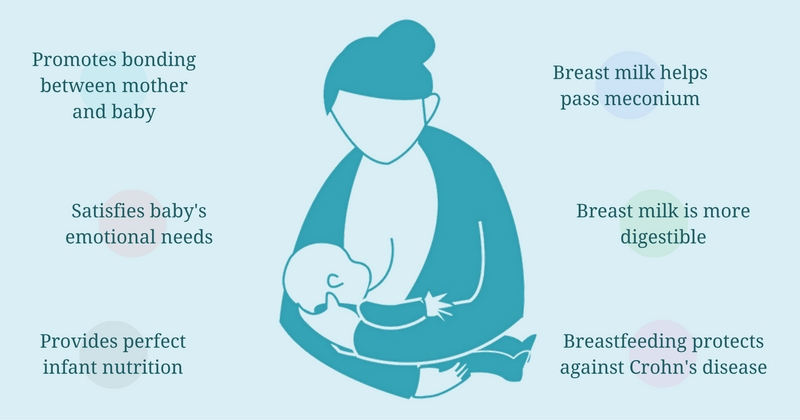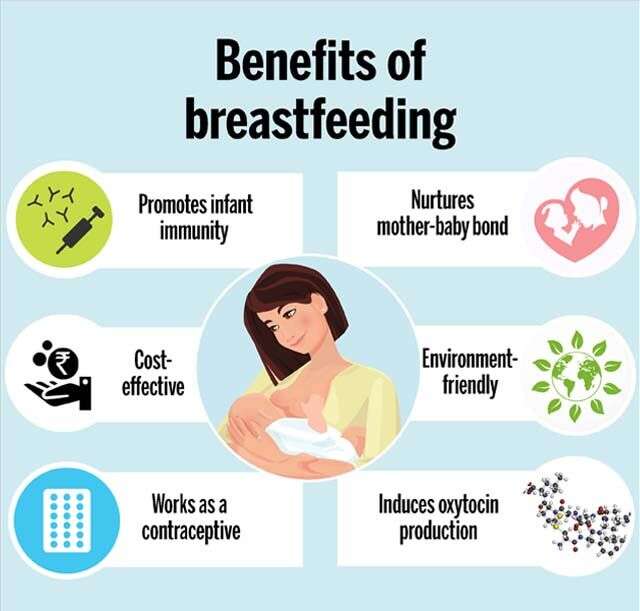Understanding the Power of Motherhood: What Are 5 Advantages of Breastfeeding?
Introduction
The power of motherhood is limitless, and breastfeeding is a significant aspect of this power. It's no secret that breastfeeding provides several advantages for both mother and baby. It's crucial for a newborn's development, fosters mother-baby bonding, and contributes to the mother's health, aside from being convenient and cost-effective. In this in-depth article, we'll explore the various aspects of breastfeeding and understand why it's a superior option.
Why Is Breastfeeding Crucial for a Newborn's Development?
Unraveling the Pathway to Comprehensive Nutrition
Empowering and Fortifying the Infant's Immune System
Breastfeeding is of utmost importance to newborn development for several reasons, with two of the most significant being the provision of optimal nutrition and strengthening the baby's immune system:
Unraveling the Pathway to Comprehensive Nutrition
Breast milk, often labeled the 'liquid gold,' offers a complete package of all essential nutrients that a newborn requires for growth.
- It serves a dynamic blend of vitamins, proteins, and healthy fats in perfect proportion to meet the baby's developmental needs.
- Simultaneously, the composition of breast milk adapts to the changing nutritional requirements of the growing baby.
Empowering and Fortifying the Infant's Immune System
Additionally, breastfeeding plays a pivotal role in building a robust immune system for the baby:
- Breast milk contains antibodies crucial in protecting babies against viruses and bacteria, serving as their primary defense mechanism.
- Research evidence suggests breastfeeding decreases the baby's chance of developing allergies or asthma later in life.
- According to the World Health Organization, breastfeeding reduces the mortality rate among infants, reinforcing its importance in fostering healthy immune function.
In essence, breastfeeding acts as a natural and effective conduit in promoting a well-rounded development and strong immunity in infants, corroborating its vital role in newborn care.
How Does Breastfeeding Contribute to Mother's Health?
Paving the Path towards Rapid Postpartum Recovery
Laying the Foundations for Sound Emotional Health
In delving into how breastfeeding can considerably boost a mother's health, two essential themes emerge - its potent role in postpartum recovery and emotional well-being.
Paving the Path towards Rapid Postpartum Recovery:
- Fastens Uterine Contraction: Breastfeeding triggers the release of oxytocin, a hormone that aids in contracting the uterus back to its pre-pregnancy size, helping mothers rebound their physiological state quicker.
- Reduces Postpartum Bleeding: The uterine contractions stimulated by breastfeeding also aid in minimizing postpartum bleeding.
- Lower Risk of Cancer: Interestingly, studies suggest that breastfeeding might decrease the chance of breast and ovarian cancers. The American Institute for Cancer Research states breastfeeding mothers are about 2% less likely to develop breast cancer.
Laying the Foundations for Sound Emotional Health:
- Encouraging Bonding: Breastfeeding enhances emotional ties. The physical closeness and eye contact shared during this process stimulate oxytocin release, fostering a powerful bond between mother and baby.
- Battles Postpartum Depression: The 'feel-good' hormone oxytocin, released during breastfeeding, also promotes feelings of relaxation, love, and care. This might play a crucial role in reducing postpartum depression. A study in the Journal of Obstetric, Gynecologic, and Neonatal Nursing found that mothers who breastfed their babies had significantly fewer symptoms of postpartum depression than mothers who didn't.
In conclusion, breastfeeding is a valuable tool that contributes significantly to a mother's physical and emotional health post childbirth, and therefore should be encouraged and supported.
How Does Convenience and Cost-Effectiveness Make Breastfeeding a Superior Option?
Breastfeeding stands out as a superior feeding choice for babies, not only due to its incredible health benefits, but also its cost-effectiveness and convenience. Let's unravel these aspects to understand why breastfeeding provides an undeniable edge.
Embracing Cost-Effectiveness
The financial perspective of breastfeeding is often overlooked yet it plays an integral part in its superiority. Breastfeeding incurs no direct costs as it does not require any equipment or supplies, as opposed to formula feeding:
1. No Need for Formula: The monthly cost of infant formula can add up, with estimates reaching up to $150 per month or more, counting for a significant part of the family budget.
2. Zero Equipment Cost: With breastfeeding, you bypass the need for bottles, teats, sterilizers, and warmers - all of which can tally up to an added expense.
The Convenience Factor
Apart from its cost-effectiveness, the accessibility and straightforwardness of breastfeeding make it a hassle-free option:
1. Always Ready: Breast milk is always available on demand, eliminating the need for preparation and heating.
2. Perfect Temperature: The breast milk is always at the body's natural temperature, so you won't have to worry about getting it 'just right.'
3. Less Cleaning: As you're not using any bottles or extra feeding equipment, there's less cleaning and sanitizing involved.
4. Travel-Friendly: Whether you're at home, at work, or traveling, breastfeeding makes feeding your baby convenient without the additional baggage of bottles and formula.
To conclude, the cost-effectiveness combined with convenience positions breastfeeding as an optimal choice for mothers and babies alike, even beyond the evident health benefits.
Can Breastfeeding Enhance Mother-Baby Bonding?
Breastfeeding is not just a fundamental health practice; it serves as a nurturing experience that can significantly enhance the bonding between mother and baby. Let's delve into how this natural act aids in forging a powerful emotional connection:
- Intimacy and Comfort:
The close physical contact experienced during breastfeeding goes beyond just nutrition; it instills a sense of security and comfort in babies.
- Bonding Hormone:
Breastfeeding triggers the release of 'Oxytocin,' also known as the 'bonding hormone.' This hormone promotes feelings of love and contentment, crucial for establishing a strong emotional bond with the baby.
- Shared Experiences:
The mutual gazing and touch during breastfeeding enable shared experiences that further contribute to relationship building.
- Founded Trust:
Breastfeeding tends to build a foundation of trust, as the baby begins to recognize his mother as a provider of nourishment, warmth, and comfort.
Finally, it is worth noting that the unique bond formed through breastfeeding doesn't just have immediate benefits, but its positive influence can potentially extend into the future, fostering a healthier emotional life for the child. The magical bond formed during breastfeeding is truly incomparable and irreplaceable.
Conclusion
To sum up, breastfeeding provides countless benefits – optimal nutrients for the baby, bolstering the baby's immune system, contributing to the mother's physical and emotional health, enhancing mother-baby bonding, and being cost-effective. Understanding the advantages of breastfeeding is enlightening and encourages new mothers to make informed decisions for their babies' well-being.
Related FAQs about what are 5 advantages of breastfeeding
What Makes the Nutritional Composition of Breast Milk Superior to Formula?
Breast milk is considered superior to formula because it has the perfect blend of nutrients essential for a baby's growth and development. It contains vitamins, proteins, and healthy fats in appropriate proportions. Furthermore, its composition adapts to meet the baby's changing nutritional needs, an aspect formula cannot replicate.

How Does Breastfeeding Strengthen a Baby's Immune System?
Breastfeeding fortifies a baby's immune system as it is rich in antibodies that provide protection against viruses and bacteria. This serves as the baby's primary defense mechanism, reducing the likelihood of developing allergies, asthma, and reducing the mortality rate among infants.

How Can Breastfeeding Support A Mother's Emotional Health?
Breastfeeding releases 'oxytocin,' a 'feel-good hormone,' encouraging feelings of relaxation, love, and care, which helps to reduce postpartum depression. It also enhances emotional ties through the physical closeness and eye contact shared during the process, fostering a powerful bond between mother and baby.


